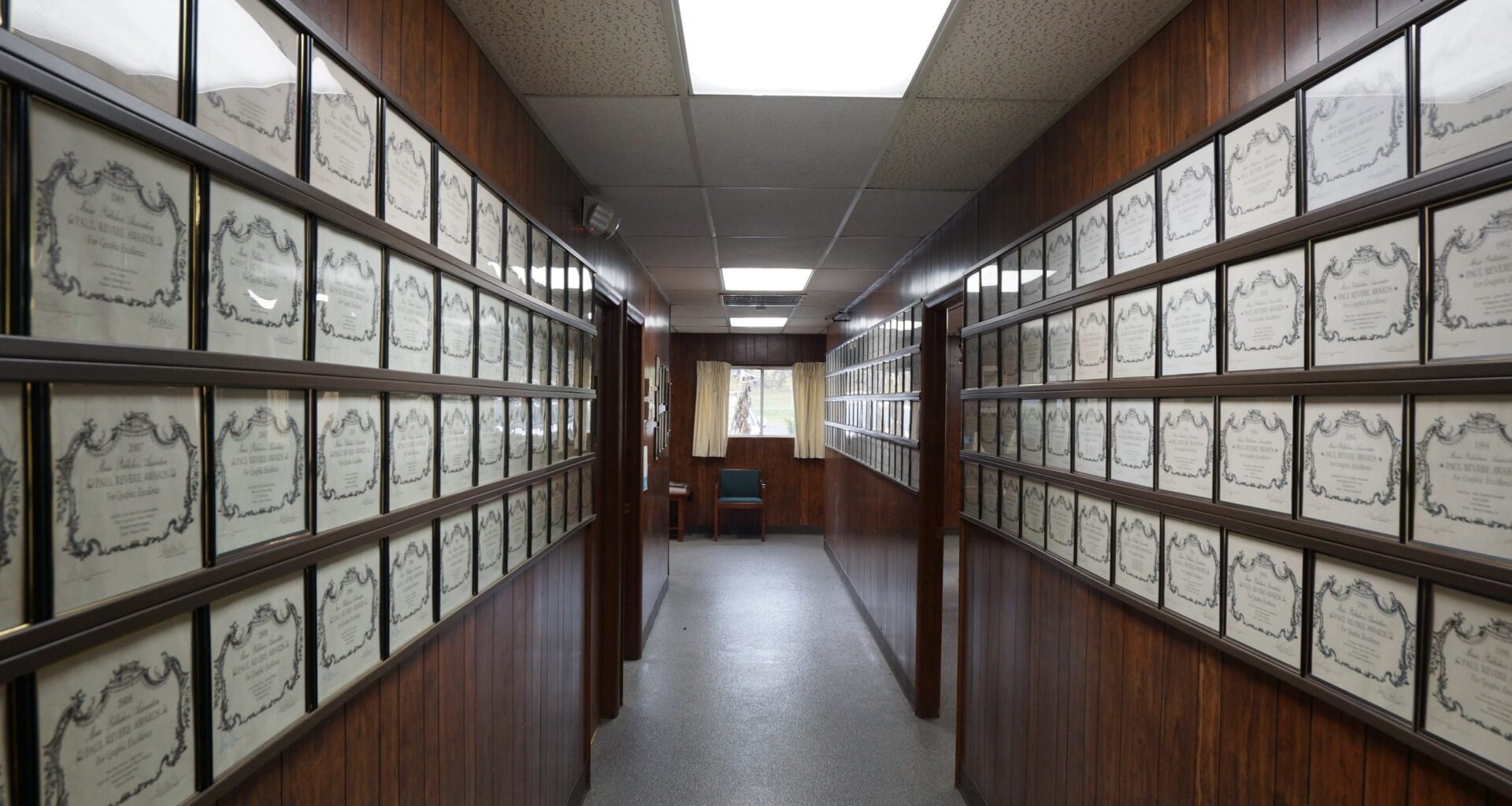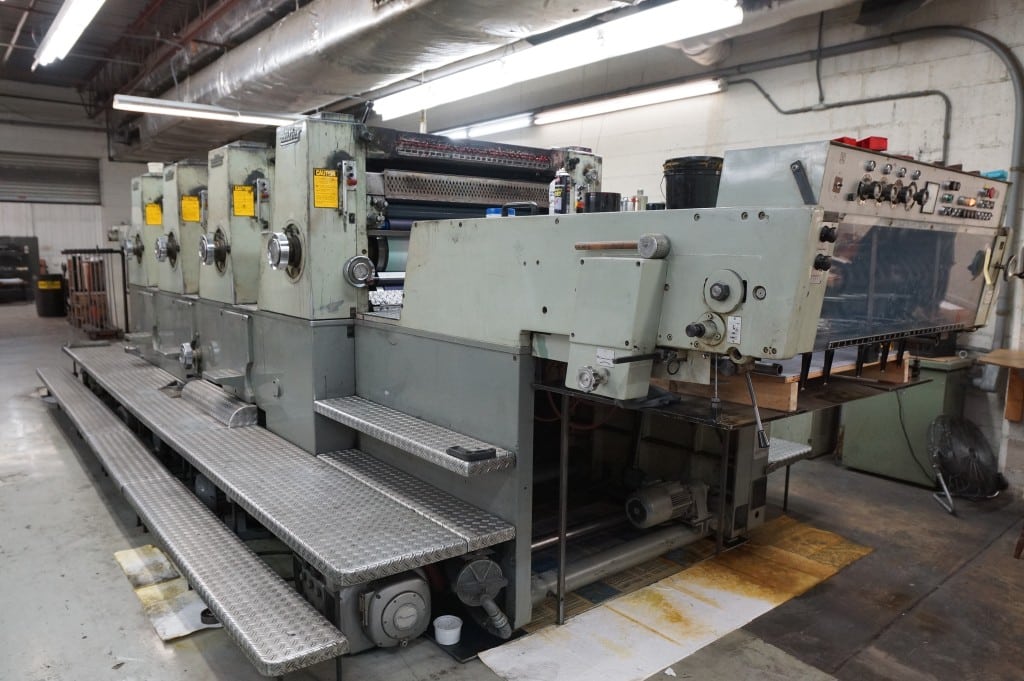 The mammoth printing presses at Chernay Printing in Coopersburg will soon complete their final runs.
The mammoth printing presses at Chernay Printing in Coopersburg will soon complete their final runs.
When the presses at Chernay Printing in Coopersburg run their final job later this year, it won’t just mark the end of production; it will mark the closing chapter of nearly six decades of craftsmanship, creativity and community presence. For generations, the rhythmic hum of those presses formed part of the local soundtrack; ink on paper turned into music on stands, from school auditoriums to symphony halls.
For Lisa Arnold, current CEO and third-generation leader of the family-owned business, the decision to close wasn’t made lightly. “There’s pride, of course, but also gratitude,” she said. “My grandfather built something lasting, and we’ve been able to honor that all these years.”
The Fortune in “Oil and Water”
The story of Chernay Printing begins with its founder, Paul Chernay, who was born at St. Luke’s Hospital in 1926. After serving in the U.S. Navy during World War II, as a gunner’s assistant deployed to French Morocco, Paul was stationed in Fort Worth, Texas, where he met his wife, Betty Jo, in 1946.
During his years in Texas, a chance encounter with a fortune teller would leave a strangely prophetic mark on his life. The woman told Paul that his fortune would be made “in oil and water.” At the time, in oil-rich Texas, the prediction seemed obvious. But decades later, it would prove almost poetic: the foundation of offset lithography printing, Chernay’s future livelihood, is quite literally the delicate balance of oil and water.
A Return Home and a Leap of Faith
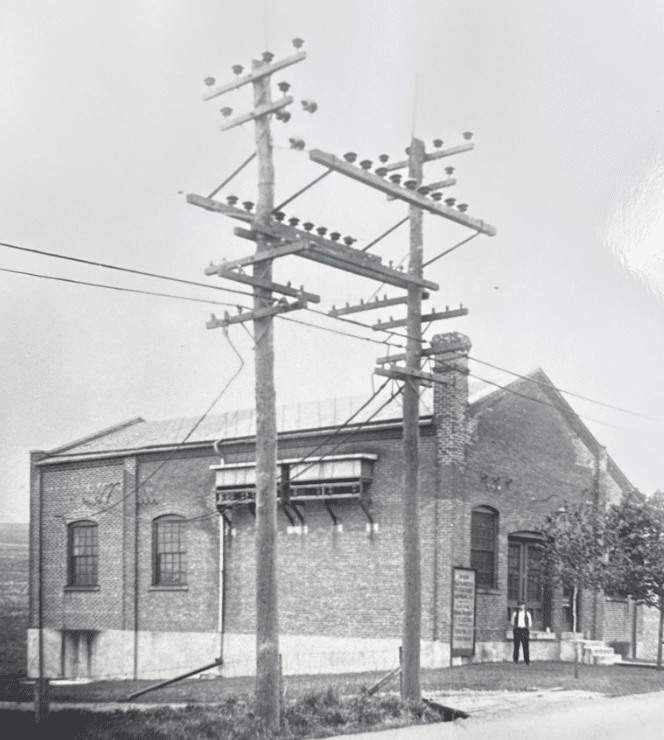 Chernay Printing is located in a building that was originally constructed for the trolley line that ran through Coopersburg. (Contributed photo)
Chernay Printing is located in a building that was originally constructed for the trolley line that ran through Coopersburg. (Contributed photo)
In the 1950s, Paul and Betty Jo returned to their roots in the Lehigh Valley. Paul tried his hand as a traveling insurance salesman, but the constant road life didn’t suit him. He wanted to build something of his own; something rooted, tangible and local. In 1966, he founded Chernay Printing Company in Allentown, launching a business that would eventually become a leader in its field.
As orders grew and presses multiplied, the company needed more space. In 1968, Paul relocated to Coopersburg, to a commercial building with deep local history; the former Liberty Bell trolley station once operated by the Lehigh Valley Transit Line. The structure that once carried passengers north and south throughout the region would now carry a different kind of movement: ink and paper through the press.
The Music Business (in Every Sense)
In the following years, Chernay Printing discovered its niche: sheet music. The company began working with major music publishers, printing everything from classical scores and marching band arrangements to pop hits by artists like Lionel Richie and Cyndi Lauper.
Over time, Chernay developed a reputation for precision and reliability that made it the go-to printer for the music industry. In addition to its printing prowess, the company’s products became the benchmark for binding and finishing quality: pages that lay flat on a piano stand and covers that reflected the artistry within.
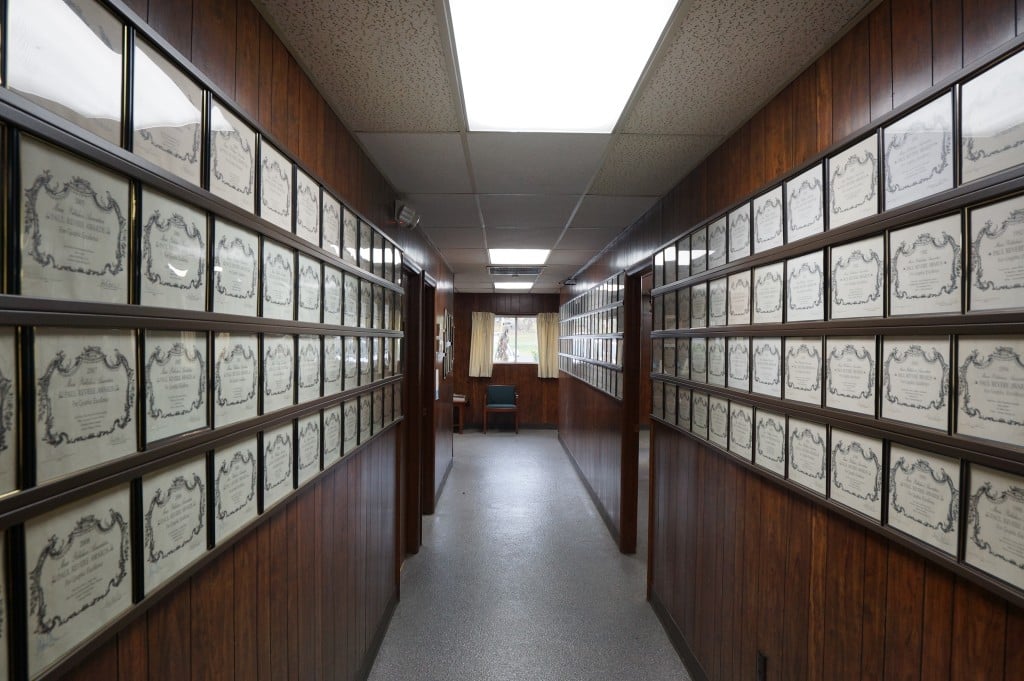 The walls inside the offices at Chernay Printing are lined with Paul Revere awards the business has won over the years. The Revere awards recognize excellence in printing.
The walls inside the offices at Chernay Printing are lined with Paul Revere awards the business has won over the years. The Revere awards recognize excellence in printing.
That dedication to craft did not go unnoticed. Over the years, Chernay Printing won dozens of prestigious Paul Revere Awards in recognition of the company’s excellence in graphic design and production. It was a reminder that Chernay was never just a print shop; it was a creative partner helping bring the visual and tactile elements of music to life.
People think of printing as mechanical, but there’s art in every step—color balance, texture, layout. Chernay didn’t just print music; they were printing the emotion that goes with it.
From Heidelberg to Digital: Keeping Pace with Change
At its core, Chernay’s identity was tied to the offset lithography process that Paul knew best; the “oil and water” alchemy that defined printing for generations. The company’s massive Heidelberg presses became symbols of industrial elegance, their rhythmic motion and precise registration the heartbeat of the business.
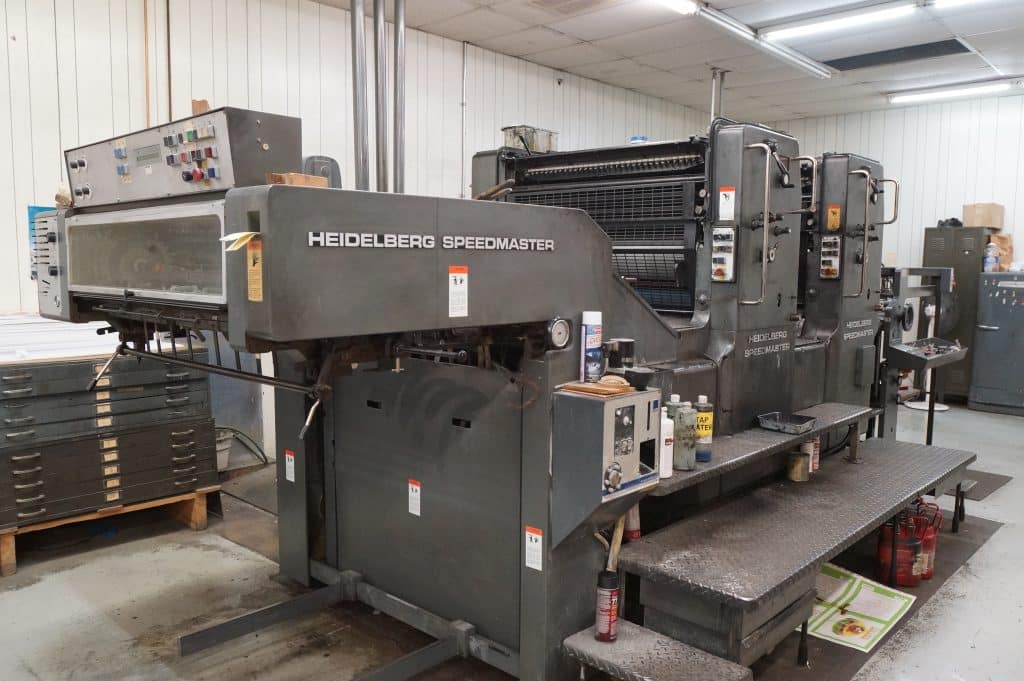 A Heidelberg Speedmaster printing press at Chernay Printing in Coopersburg.
A Heidelberg Speedmaster printing press at Chernay Printing in Coopersburg.
But as technology evolved, so did Chernay. Digital printing arrived, offering smaller runs and faster turnaround times for an industry increasingly demanding “on-demand” production. Chernay embraced the shift without sacrificing quality, adding digital presses to complement its traditional equipment and serve a broader range of clients.
For decades, that balance, between tradition and technology, kept the company competitive and respected. Chernay was not just keeping up with the times; it was quietly defining what excellence in printing looked like.
Generations of Leadership, and a Legacy of Care
Paul and Betty Jo’s daughter Paula married Ed Ward, who became president of Chernay Printing in 1973. While Paula devoted her time to raising their two children, Ed played a pivotal role in steering the company into its next era. Under his steady leadership, Chernay embraced new technologies and navigated the shift from traditional offset to digital printing, most notably with the purchase of a Xerox iGen; a move that ensured the company stayed current and competitive in a rapidly changing industry. For 50 years, Ed’s combination of innovation, precision and leadership helped sustain the family’s legacy of excellence. (Paula passed away in 1991, but her spirit remains an enduring part of the company’s story.)
Lisa Arnold represents the third generation of the family business. She and her sister Laura quite literally grew up in the shop—running errands, collating pages and soaking in the familiar scent of ink and paper. Laura later became an integral part of the company, working in Customer Service and Sales, while Lisa’s path eventually brought her back to Chernay, returning as CEO in 2023 following her father Ed’s retirement. Together, they continued ahead with the same hands-on dedication and pride that defined the generations before them.
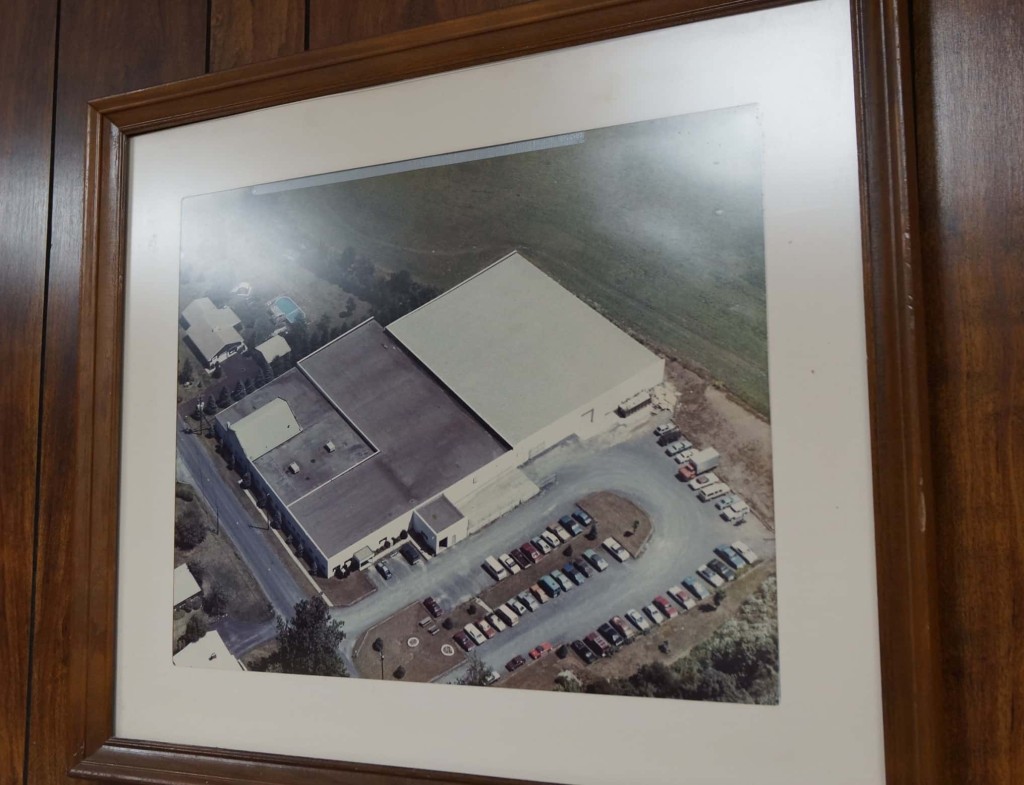 A frame photo of the Chernay Printing factory complex in Coopersburg hangs in the company office.
A frame photo of the Chernay Printing factory complex in Coopersburg hangs in the company office.
“When you grow up in a family business, it’s part of your DNA,” she said. “I learned from my dad and my grandfather that our name on the box means something. It has to be right before it goes out the door.”
A Changing Industry
Yet for all its ingenuity and adaptability, Chernay Printing was ultimately confronting forces larger than any family business could offset. The global shift from print to digital media transformed nearly every aspect of publishing. Where once bands and choirs ordered thousands of printed scores, today many musicians read from iPads and digital libraries. Demand for traditional printed and bound sheet music has declined steadily for years.
“The industry has been changing for a long time,” Arnold reflected. “It’s not just printing that’s different; it’s how people consume music and art. We kept reinventing ourselves to keep serving our customers, but eventually the market told us it was time.”
That time will come in December, when Chernay finishes its final orders and completes its last shipments. True to form, every job will be done to the company’s standards of excellence until the final box leaves the dock.
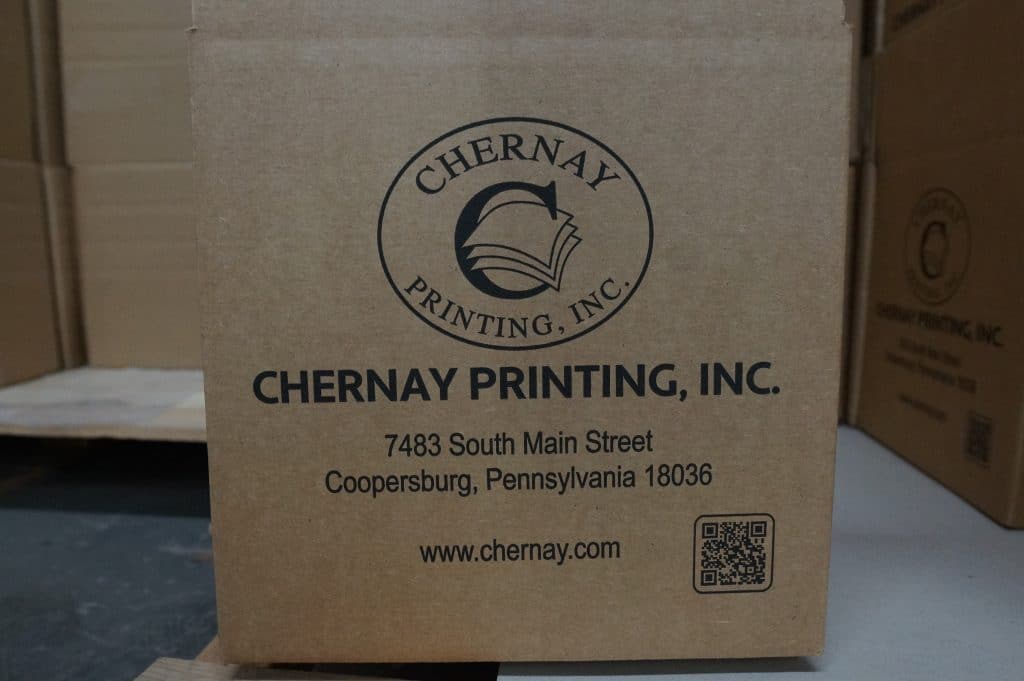 A box of printed materials ready for shipping displays the Chernay Printing logo. The company will box and ship its final orders before the end of this year.
A box of printed materials ready for shipping displays the Chernay Printing logo. The company will box and ship its final orders before the end of this year.
“Immensely Grateful”
The announcement of Chernay’s closure sparked an outpouring of community memories and industry appreciation. Former employees, clients and neighbors shared stories of a family-run business that treated every customer like a partner. It wasn’t unusual for Paul or Ed to go the extra mile for a client, personally delivering proofs, troubleshooting on site or doing whatever it took to make sure each job met their exacting standards.
That culture of care and craft was the through-line from 1966 to 2025. And it’s why, even as the machines go quiet and the lights dim, there’s an undeniable sense of celebration in the air. Rather than a time to mourn, it’s a time to toast the business’s longevity, excellence and integrity.
“We’ve been so fortunate,” Arnold said. “The people we’ve worked with, the projects we’ve been part of—it’s been a gift. We’re immensely grateful for every client, every employee, every decade.”
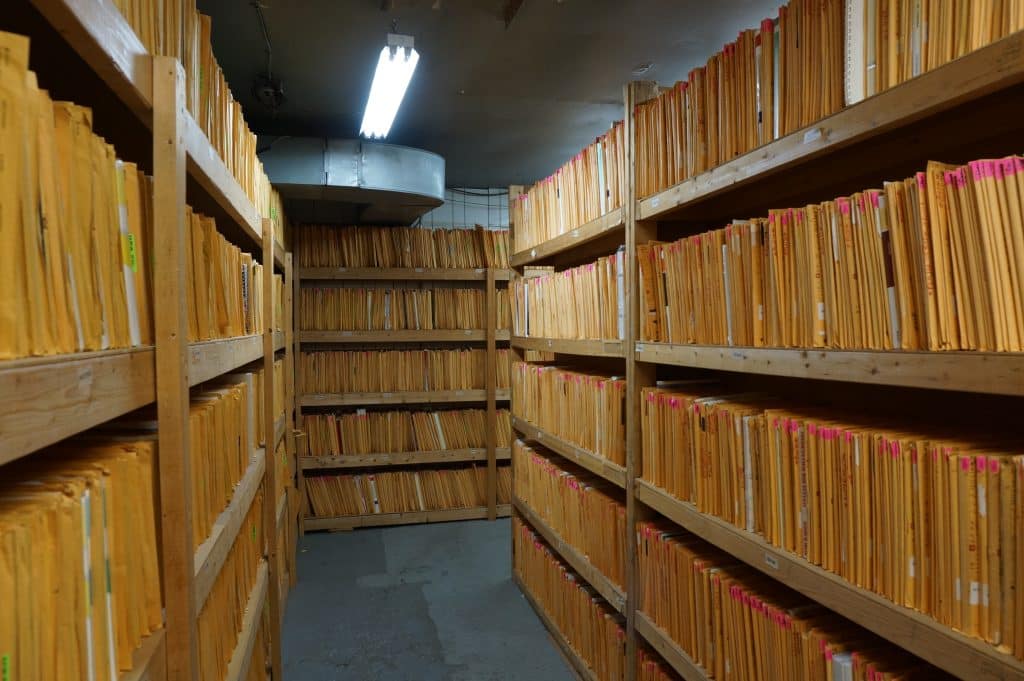 Shelves at Chernay Printing are filled with the sheet music the company printed for many well-known artists over the years.
Shelves at Chernay Printing are filled with the sheet music the company printed for many well-known artists over the years.
The Legacy Lives On
When the final press stops and the last shipment heads out from the old trolley station building, it won’t be an ending so much as a completion of the circle Paul Chernay began nearly 60 years ago. He once heard he’d make his fortune in “oil and water.” He did, by mastering chemistry that turns blank paper into art, sound and legacy.
If you drive past that quiet brick building in Coopersburg in the coming months, know that inside those walls was more than a business. It was a family story of vision, craftsmanship and community. And though the presses will rest, the music they helped create will keep playing on.
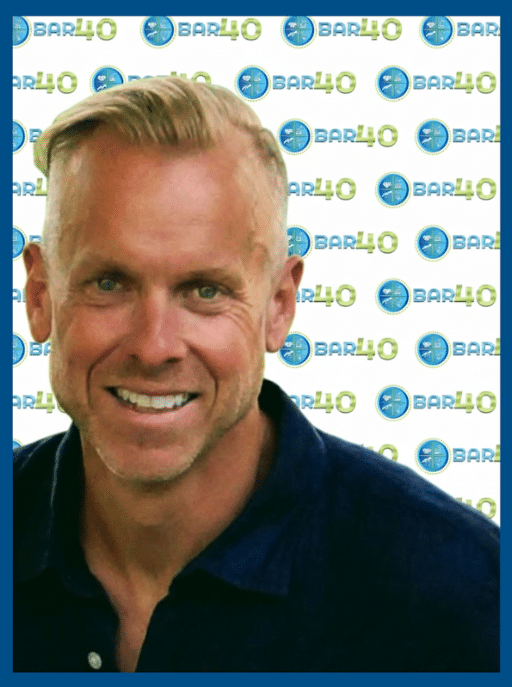
About the Author
Eric Bartosz is the founder of BAR40 and the author of the internationally acclaimed and bestselling book ‘BAR40: Achieving Personal Excellence’. Eric is an adjunct MBA professor at DeSales University and is also on the Marketing and Communications team. He serves the community as an Upper Saucon firefighter, member of the Parks and Recreation Commission, President of the Saucon Rail Trail Oversight Commission and a non-profit event and race organizer.

